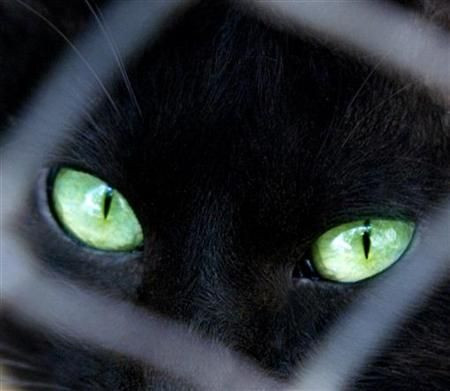When You Believe In Things You Don’t Understand: Indian Anti-Superstition Activist Shot To Death

In a country where the majority of people hold deeply superstitious views, India’s Narendra Dabholkar stood apart for his campaign to rid his nation of what he regarded as backward attitudes. He even sought to enact a law in his home state of Maharashtra to ban superstitions and the practice of black magic, and he aimed to promote rational thought. And for that activism, he paid with his life.
India Today Online reported that Dabholkar, 71, was shot to death outside a temple in the city of Pune on Tuesday morning by two unidentified assailants riding a motorcycle who left him to die in a pool of blood. Maharashtra Home Minister R.R. Patil condemned the killing and promised that local police would apprehend the killers. Police in Pune reportedly have some leads on the identity of the culprits.
In 1989, Dabholkar, a medical doctor, founded an organization called Maharashtra Andhashraddha Nirmoolan Samiti (“Committee for the Eradication of Blind Faith”), which sought to change people’s minds by advancing rationalism and science in place of superstitions and belief in unscientific things like miracles, Hindu ascetics who claimed to have supernatural powers and animal sacrifices.
The Committee’s website says its purpose is to: cultivate scientific attitude, skepticism, humanism and critical thinking among the people; to oppose harmful superstitions, which exploit people; to cultivate rationalistic moral values, humanism and create a just society; to encourage constructive analysis of religious traditions and customs; and to agitate against harmful superstitions and rituals.
As such, Dabholkar had long irritated and angered segments of the local Hindu population, particularly the Warkari sect, for what they viewed as his attacks on Hindu culture, mysticism and spirituality.
But Dabholkar denied that he was opposed to religion. He told Agence France Presse recently: "In the whole of the [anti-superstition] bill, there's not a single word about God or religion. Nothing like that. The Indian constitution allows freedom of worship and nobody can take that away. This is about fraudulent and exploitative practices."
Dabholkar’s killing was condemned by Indians of various stripes, including scholars and journalists. Dilip D’Souza, a Mumbai-based journalist, praised Dabholkar as an “unflagging voice for reason in a climate that seeks to shun it.” S. Irfan Habib, a political historian, called the killing “a sad reflection on our society. Tolerance levels have come down heavily. What a shame.”
Narendra Nayak, another leading Indian rationalist, is the president of the Federation of Indian Rationalists Association (FIRA). He has long campaigned against Hindu ”holy men” and horoscopes. “I would spell astrology with two ‘s,’ he told the Deccan Herald newspaper. “People are made asses. The Nadi Jyothisyas [astrologers] who claim to predict your future are only good reaction readers. As for people who go by reading their daily horoscope in papers, I advise them to buy different newspapers.”
While many Indians would condemn the murder of an innocent man, they are unlikely to give up a multitude of superstitions that guide and dictate their very lives. Stretching back to antiquity, Indians have long embraced superstitions, including those from astrology, to divine auspicious dates for marriage, when to bathe in the Ganges River to eradicate one's sins, and which trees house sprits of the dead, among thousands of other superstitions.
© Copyright IBTimes 2024. All rights reserved.





















